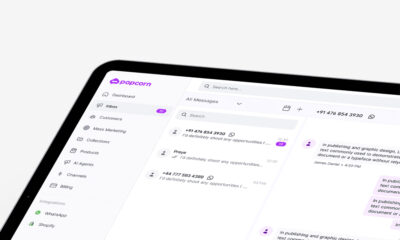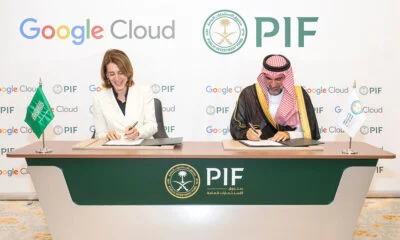News
Meta & Startupbootcamp Program Will Promote MENA Startups
The initiative will encourage AI adoption through a series of workshops and bootcamps and offer $500,000 to support product development.

Facebook and Instagram owner Meta has begun a collaboration with Startupbootcamp, a startup accelerator responsible for over 1,600 successful launches.
The strategic partnership aims to boost the MENA region’s startup scene using cutting-edge AI technologies through its Llama Design Drive initiative.
The program consists of three four-week sprints that will take place across the United Arab Emirates, Saudi Arabia, and Egypt. Llama Design Drive highlights include workshops and mentorship sessions and strategic partnerships with industry thought leaders.
The program by Meta and Startupbootcamp hopes to bridge the gap between established companies and the dynamic AI startup sector. To that end, Llama Design Drive will promote the use of Meta’s open-source large language model, Llama 3.1, helping companies develop products that tackle “real-world challenges in mobility, aviation, energy distribution, retail, and real estate”.
Startups recruited into the Llama Design Drive program will get the opportunity to be fast-tracked into a global initiative sponsored by Meta and have the chance to win up to $500,000 to support future product development.
“Our program not only promotes the adoption of AI technologies to develop solutions for corporate challenges but also facilitates connections between startups, corporates, and industry experts to expand networks and gain valuable knowledge and technical skills,” explained Ibrahim “Abe” Seksek, CEO MENA at Startupbootcamp.
Also Read: The Most AI-Proof Career Opportunities In The Middle East
“The whole world is excited to see how AI can add value to people’s lives,” added Joulan Abdul Khalek, Policy Programs Manager, Africa Middle East and Turkey at Meta. “Llama Design Drive is a great example of how open source can bring people together to co-create meaningful AI solutions. By doing so, we hope to cultivate a thriving community of tech talent across the region, working with them to unlock the potential of these exponential technologies to address real-world challenges”.
The MENA region — and the Middle East in particular — is ideally positioned for AI sector dominance, with both governments and businesses scrambling to adopt advanced technologies. In real terms, the Middle East as a whole is expected to reap 2% of the total worldwide benefits of AI by 2030, with annual growth surging to 20-34% across the region.
News
Samsung Smart Glasses Teased For January, Software Reveal Imminent
According to Korean sources, the new wearable will launch alongside the Galaxy S25, with the accompanying software platform unveiled this December.

Samsung appears poised to introduce its highly anticipated smart glasses in January 2025, alongside the launch of the Galaxy S25. According to sources in Korea, the company will first reveal the accompanying software platform later this month.
As per a report from Yonhap News, Samsung’s unveiling strategy for the smart glasses echoes its approach with the Galaxy Ring earlier this year. The January showcase won’t constitute a full product launch but will likely feature teaser visuals at the Galaxy S25 event. A more detailed rollout could follow in subsequent months.
Just in: Samsung is set to unveil a prototype of its augmented reality (AR) glasses, currently in development, during the Galaxy S25 Unpacked event early next year, likely in the form of videos or images.
Additionally, prior to revealing the prototype, Samsung plans to introduce…
— Jukanlosreve (@Jukanlosreve) December 3, 2024
The Galaxy Ring, for example, debuted in January via a short presentation during Samsung’s Unpacked event. The full product unveiling came later at MWC in February, and the final release followed in July. Samsung seems to be adopting a similar phased approach with its smart glasses, which are expected to hit the market in the third quarter of 2025.
A Collaborative Software Effort
Samsung’s partnership with Google has played a key role in developing the smart glasses’ software. This collaboration was first announced in February 2023, with the device set to run on an Android-based platform. In July, the companies reiterated their plans to deliver an extended reality (XR) platform by the end of the year. The software specifics for the XR device are expected to be unveiled before the end of December.
Reports suggest that the smart glasses will resemble Ray-Ban Meta smart glasses in functionality. They won’t include a display but will weigh approximately 50 grams, emphasizing a lightweight, user-friendly design.
Feature Set And Compatibility
The glasses are rumored to integrate Google’s Gemini technology, alongside features like gesture recognition and potential payment capabilities. Samsung aims to create a seamless user experience by integrating the glasses with its broader Galaxy ecosystem, starting with the Galaxy S25, slated for release on January 22.

























